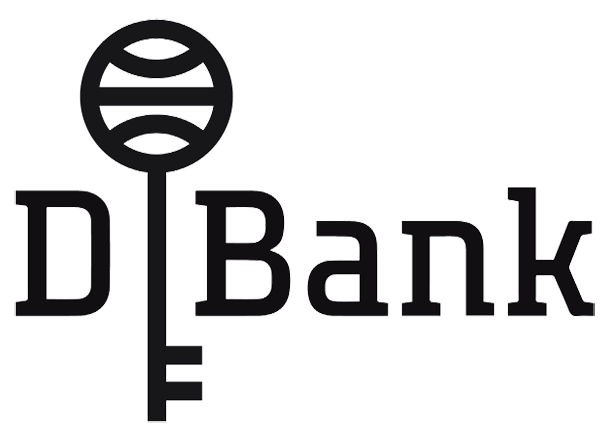
27 Jul Credit: The Key to Finance
In the world of financing, a favorable credit history a key that unlocks the doors to loans and a whole host of financing options. Whether someone dreams of starting their own business, purchasing a home, or investing in higher education, creditworthiness plays a critical role in securing the necessary funds.
Without good credit, these dreams may remain elusive, and the path to financial independence unfulfilled. And when it comes to securing housing, credit checks have become a common practice for landlords.
With a positive credit history, individuals increase their chances of securing a desirable rental agreement.
The stability provides anyone with a place to call home and a solid foundation from which to build their financial future.
In the realm of employment, credit reports have also become a factor in the hiring process for some employers. Resp

onsible financial behavior reflected in a credit report can indicate an individual’s reliability and trustworthiness.
Maintaining good credit can, therefore, positively impact career prospects and open doors to job opportunities that may otherwise remain closed.
For those embarking on the entrepreneurial journey, credit serves as a vital resource. Starting a business often requires initial investments and ongoing operational expenses.
Entrepreneurs rely on credit to secure business loans and lines of credit, offering them the financial flexibility needed to fuel growth and expansion.
Good credit becomes the key that unlocks the doors to entrepreneurial success.
By recognizing the significance of credit and embracing financial organization, individuals can construct a solid financial future. They can set goals, make informed decisions, and take proactive steps to ensure a prosperous and secure future. But to achieve financial stability and pave the way fora secure future, it is essential to focus on financial organization.
Budgeting serves as the cornerstone of financial stability by helping individuals understand their income, track expenses, and allocate funds for savings and future goals.
By creating a budget, individuals gain a clear picture of their financial situation and can make conscious spending decisions that align with their priorities. This empowers them to avoid falling into debt traps and make the most of their financial resources.
Effectively managing existing debts is another crucial aspect of financial stability. Developing a debt repayment plan, prioritizing
high-interest debts, and exploring debt consolidation options can help individuals regain control over their financial obligations. By tackling debts strategically, individuals can not only reduce their overall debt burden but also save money in the long run by minimizing interest payments.
Building a savings habit is vital for creating a financial safety net and reducing reliance on credit during challenging times. Setting aside a portion of income for emergencies and unexpected expenses provides a sense of security and peace of mind. By establishing an emergency fund, individuals can navigate unexpected financial setbacks without resorting to high-interest credit options, helping them stay on track toward their financial goals.
Record-keeping plays a crucial role in informed decision-making. By keeping thorough records of income, expenses, and investments, individuals can monitor their financial progress and identify areas for improvement. This valuable insight allows them to track their financial goals and make necessary adjustments along the way, ensuring that they stay on the right path toward financial success.
To construct a secure financial future, setting clear financial goals is key.
Whether it’s saving for retirement, purchasing a home, or starting a family, defining specific and
achievable goals provides individuals with a sense of direction and purpose. These goals serve as a motivating force, driving individuals to make financial decisions that align with their
long-term aspirations.
By exploring different investment options such as stocks, bonds, real estate, and retirement accounts, individuals can grow their wealth over time and prepare for future financial needs.
Diversification is key to managing risk and maximizing returns. Spreading investments
across various asset classes and industries can help mitigate the impact of market fluctuations and increase the likelihood of consistent returns, much like cultivating a garden with diverse plant varieties ensures a bountiful harvest.
Continual learning through financial education is crucial for making informed financial decisions. Engaging in books, and courses, or seeking professional advice empowers individuals to navigate the complexities of the financial landscape. By staying informed about the latest trends,
strategies, and best practices, individuals can make choices aligned with their long-term objectives and adapt to changing economic conditions.

Practical steps can be taken to get ahead financially. Reducing debt requires developing a structured repayment plan, exploring debt consolidation options, and seeking professional advice when necessary. By addressing existing debts and reducing high-interest obligations, individuals can alleviate financial burdens and create more room for savings and investments.
Automating savings by setting up automatic transfers to a dedicated savings account ensures consistent progress toward financial goals.
Exploring retirement accounts such as 401(k)s or IRAs and considering low-cost index funds or diversified portfolios can facilitate long-term wealth accumulation and provide for future financial needs.
Engaging with financial advisors or professionals can provide valuable guidance tailored to individual circumstances. These professionals can help individuals navigate complex financial situations, provide specialized advice, and create personalized strategies to achieve financial success. Seeking their expertise can offer clarity, peace of mind, and an informed approach to financial decision-making.
In conclusion, credit, financial organization, and constructing a secure financial future are paramount for achieving financial success. By recognizing the importance of credit, adopting effective financial organization strategies, and taking proactive steps toward a prosperous future, individuals can unlock a world of opportunities and safeguard their financial well-being.





No Comments